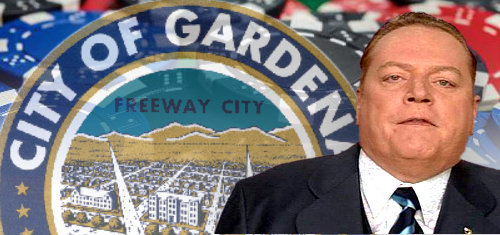 The city council of Gardena, California has blinked first in its tax standoff with casino operator Larry Flynt (pictured).
The city council of Gardena, California has blinked first in its tax standoff with casino operator Larry Flynt (pictured).
It was only last week that Flynt, founder of the Hustler adult entertainment empire and owner of the Hustler-branded casino in Gardena, threatened to walk away from his purchase of the Normandie Casino if the city didn’t scrap plans to boost his gaming taxes.
On Thursday, the Los Angeles Times reported that Gardena city council held a meeting Wednesday night, during which it walked back its demands that Flynt make a monthly minimum payment of $800k instead of the traditional 12% gaming revenue tax.
The city argued that the $9.6m minimum annual payment was only $100k more than the two casinos had collectively paid the city in 2014. Flynt countered that the plan didn’t take into account the possibility of another serious economic downturn, after which a minimum tax obligation would render both properties unprofitable.
Flynt also claimed that the city was due to reap far larger property taxes on the Normandie based on his plan to spend $60m renovating and expanding the property. But the argument that may have won the day was Flynt’s threat to use his considerable financial resources to ensure the election of city council candidates “who are friendly to gaming.”
Following Wednesday’s night retreat by the council, Flynt Management Group spokesman Evan Roosevelt said the company’s objections had been based solely on the monthly guarantee, not the total amount payable. With the kerfuffle now history, Roosevelt said the Normandie could reopen as early as Friday.
Flynt acquired the Normandie – which he’s since renamed Larry Flynt’s Lucky Lady Casino – for an undisclosed price earlier this month after state gaming regulators forced the former owners to sell. In January, members of the Miller family were hit with a $2.5m penalty from federal watchdogs over the property’s repeated violations of the Bank Secrecy Act.





